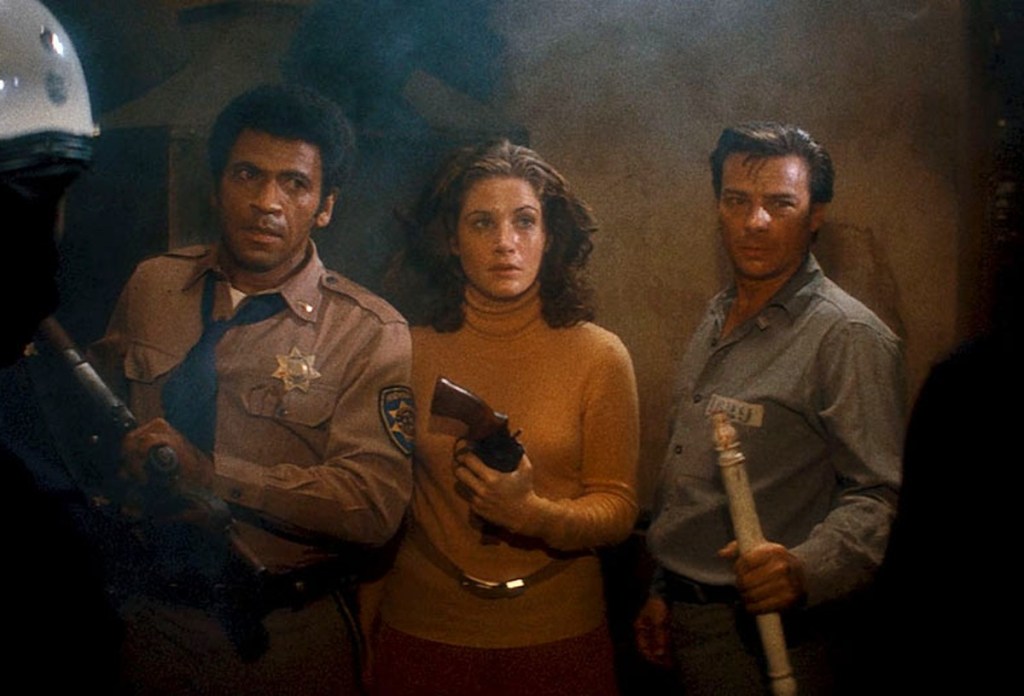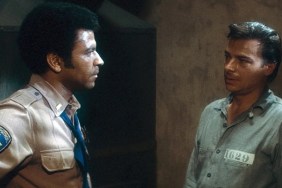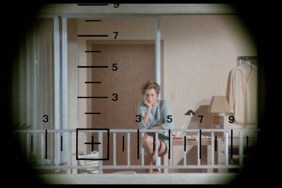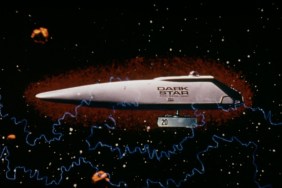This year marks the 50th anniversary of John Carpenter’s feature-length directorial debut. ComingSoon will cover each of the horror master’s films throughout 2024 as we chart his career from humble beginnings with a beach ball to the change in career direction that saw him bow out of movies for a while.
After cutting his directorial teeth with Dark Star, John Carpenter put himself front and center with his sophomore effort, where he created his unique style that would leave his signature all over genre cinema for the next 20 years.
Assault on Precinct 13 is Carpenter’s contemporary ode to the Western (well, it was in 1976), specifically Rio Bravo (not the only Howard Hawks film Carpenter would reimagine). Instead of the dusty plains of the Old West, Carpenter brings a violent standoff to the streets of South Central Los Angeles.
The titular precinct is all but gutted ahead of being commissioned, but cop Ethan Bishop (Austin Stoker) is assigned to it for its final night. What the film doesn’t explicitly talk about is why the precinct is closing. sure, there are other precincts to pick up the slack, but the introduction of a sadistic gang gives an underlying hint that the police have lost this area to crime and would rather keep it at arm’s length. That’s clearly why when shit hits the fan, there’s nobody around to give a damn.

This is why Bishop finds his first and last night at the precinct a lot louder than he might have expected. Not only does a busload of convicts on their way to prison end up stopping by, but a man is chased into the station by the aforementioned gang, who seem to be a bit aggrieved that he didn’t just give up and die earlier.
The skeleton staff and prisoners are given little choice but to work together to survive when the gang launches an assault on the precinct, but the alliance is naturally not a smooth one. in the end, it all falls to Bishop, steely receptionist Leigh (Laurie Zimmer), and convicted murderer Napoleon Wilson (Darwin Joston) to hold down the fort in an increasingly desperate situation.
Like many early Carpenter films, the magic is in how he recaptures the classic movie atmosphere in a more modern way. There’s a tense atmosphere in Assault on Precinct 13 that is an eerie match for Hawks’ Rio Bravo, and the tough-talking cool of the characters also replicates the brooding swagger of John Wayne, Dean Martin, Ricky Nelson, and company in that film. But its rough and ready approach holds as much debt to George A. Romero’s Night of the Living Dead as the tensions feel more contemporary, with a group of relative strangers given little time to get acquainted before things go South.
But that doesn’t stop us from getting some truly badass chemistry between Stoker and Joston. The pair are as far as can be from each other where the law is concerned, but a natural growing respect grows between the pair throughout the siege. Carpenter would later make a habit of creating flawed protagonists that remained likable, but this is the blueprint.
Stoker’s Bishop is all goody-two-shoes cop at first glance, but his hard edge is uncovered as the situation grows. While Joston’s Napoleon Wilson very much plays up to his reputation as a murderer but gradually shows where the context is lacking. The pair don’t exactly end the movie as twin personalities, but they discover they are much closer to each other than first appearances would suggest, which leads to one of Carpenter’s strongest endings.
Much like his juggling on Dark Star, Carpenter once again wears many hats on set, and this time his personality is far more singular in the film’s identity. Nowhjere is that felt more than in that fantastic score, inarguably the start of a stellar run of Carpenter scores that would become just as iconic in their own right as the films they spawned from.










